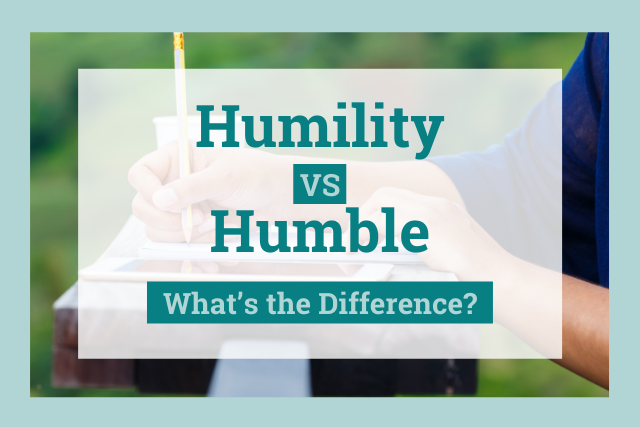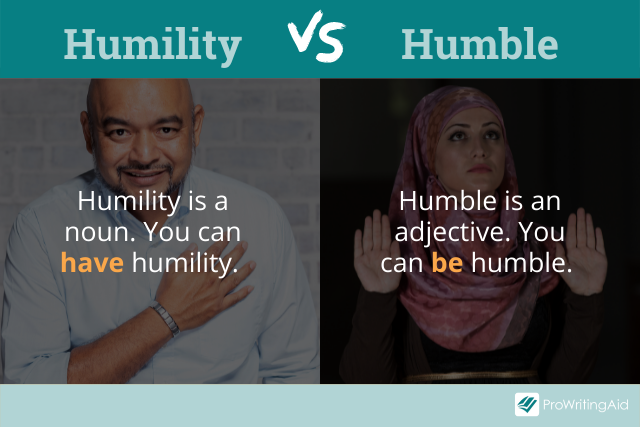
Many people mix up the words humble and humility. So what’s the difference between them?
The short answer is that the words have similar dictionary definitions, but humble is an adjective that means “modest” or “meek”, while humility is a noun that means “modesty” or “meekness."
This article will explain the difference between humble and humility and help you remember when to use each.
Meaning of Humble
Humble is an adjective defined as “not proud or arrogant.” Synonyms for humble include “modest,” “meek,” and “unassuming.”
You might describe someone as humble if they never boast about their accomplishments, or if they don’t think of themselves as being better than other people.
Here are some examples of how you might use humble in a sentence:
- He graduated at the top of his class, but he stayed humble in spite of his teachers’ glowing praise.
- She was so humble that she never bragged or boasted about her accomplishments.
- My brother never talks about this, he’s a very humble person, but he’s actually an Olympic gold medalist.
Humble can also refer to an inferior rank or background.
For example, you might say: “Jennifer never forgot the humble background her family came from,” meaning that her family started out in a lower socioeconomic standing than the one Jennifer is in now.
Meaning of Humility
Humility is a noun defined as “freedom from pride or arrogance.” It's a synonym for humbleness, as it refers to the quality of being humble.
Having humility is seen as a good quality, since it means you don’t think too highly of yourself.
You might say someone has humility if they don’t overestimate their own skills, if they don’t brag about their accomplishments, or if they recognize and acknowledge their weaknesses.
Here are some examples of how you might use humility in a sentence:
- Going to Oxford taught me humility, because everyone there was smarter than me.
- I was sure you would laugh at me when you beat me in the race, but you accepted the win with a surprising amount of humility.
- I worry that my children are too proud of themselves. How can I teach them the importance of humility?
What’s the Difference Between Humble and Humility?
Humility is the noun form of humble, and humble is the adjective form of humility.

You can say a person is very humble, or that a person has a lot of humility. Both sentences mean similar things.
One useful trick for remembering the difference is to remember that many adjectives can be made into a noun by adding a suffix like -ity.
For example, the noun form of intense is intensity, the noun form of serene is serenity, and the noun form of productive is productivity.
If you’re not sure which word you should be using, ProWritingAid will catch grammatical errors such as misusing humble and humility and help you use the right word instead.
Just remember that humility is a noun and humble is an adjective, and you’ll be able to use these words correctly in your writing!


